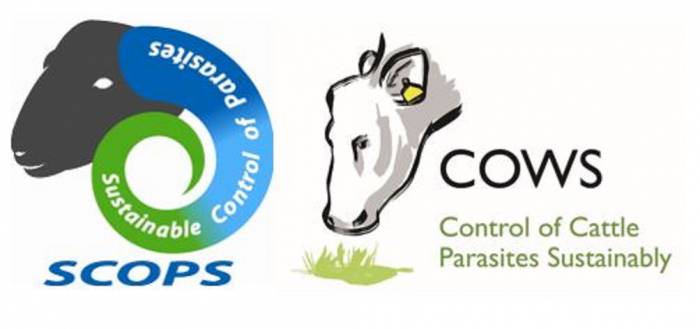22nd June 2021
The Sustainable Control of Parasites in Sheep (SCOPS) and Control of Worms Sustainably (COWS) principles are based on the responsible use of medicines such as anthelmintics, flukicides and ectoparasiticides. Our aim is to ensure these products are only used when necessary and ideally supported by a diagnosis or a risk assessment that confirms the need to protect animals from a genuine risk of disease. This approach avoids the unnecessary use of medicines and hence minimises the risks medicines pose to the environment.
SCOPS and COWS are aware of increasing interest in and the promotion of the biodiversity benefits of grazing livestock, including the merits of incorporating integrated pest management (IPM) methods into husbandry practices. We also acknowledge the positive effects a healthy pasture invertebrate community contributes to natural parasite reduction, meaning conservation of this key resource plays an important role in sustainable parasite management. However, many compounds used to treat or control pests and parasites have the potential to negatively impact invertebrates such as dung beetles, flies and aquatic fauna. This can occur when the active ingredients or their metabolites are excreted in the manure and/or urine of treated animals, or leach into the environment as a result of poor storage, application or disposal. To minimise any environmental risks, all animal medicines licensed for use in livestock undergo an Environmental Risk Assessment (ERA), reviewed by the Veterinary Medicines Directorate (VMD), the competent authority in the UK, before any license is granted.
SCOPS and COWS are aware of the confusion and complexity around potential adverse effects of anthelmintics and ectoparasiticides on the environment. With this in mind, a joint SCOPS/COWS working group has been convened to provide producers and prescribers with clear information to aid informed decision-making regarding product choices. The initial advice from this group is summarised below:
Key points:

